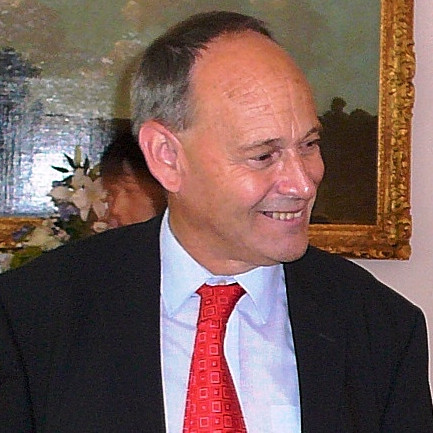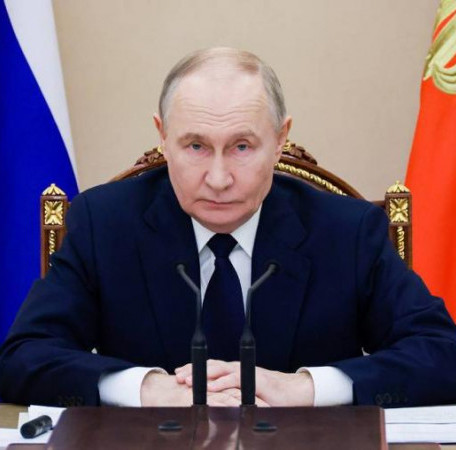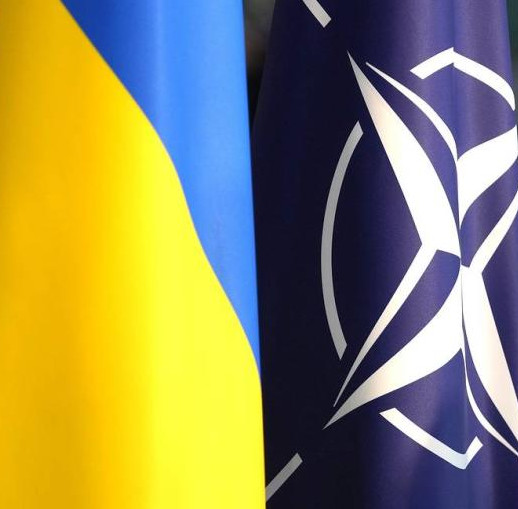
French President Emmanuel Macron supported head of the White House Donald Trump in his desire to get back to the format of the Group of Eight (G8) with the participation of Russia. This came yesterday from CNN, citing a source in the American President's administration. According to the TV channel, the US and French leaders had a telephone conversation on Tuesday evening, during which they agreed that Russia's participation in the 2020 G7 summit in the United States would be appropriate.
A reasonable question arises here as to why all of a sudden did Washington and Paris get so concerned about the revival of the G8 format our country took no part since 2014 after Crimean unification with Russia? This question was partially answered by President Trump, who told reporters the following at the Tuesday White House meeting with Romanian President Klaus Iohannis: "I think it's much more appropriate to have Russia in, particularly the G8, because a lot of things we talk about have to do with Russia. So, I can certainly see it being the G8 again, if somebody would take that motion, I would certainly be disposed to think about very favorably."
By the way, the head of the White House came up with the idea of Russia's accession to the G7 back in June last year. But then his initiative failed to find support of other members of the Group of Seven. Today, this idea has been supported by France, although there is certainly one catch here. In particular, yesterday Macron said that Russia's accession to the G7 depended on the developments in Ukraine. A similar position is taken by the UK and Germany, as British Prime Minister Boris Johnson and Federal Chancellor Angela Merkel once again said during their Wednesday meeting in Berlin. So, within the Group of Seven it's not all that simple as regards the revival of G8.
But even if we imagine that all the G7 members reach common ground and agree to invite our country to the next summit, are we going to expect a positive response to this invitation from Moscow? As they say in the iconic comedy movie "Kidnapping, Caucasian Style ", "the bridegroom has consented, the family too; as for the bride...". And the Kremlin does not seem genuinely happy about such an invitation. Suffice it to recall that apart from Trump, the Western leaders have previously made statements implying that Russia may return to the G8 after fulfilling particular conditions. It should come as no surprise that Moscow blatantly opposed such proposals, making it clear it was not ready to relinquish anything for the dubious pleasure of being a member of the Group of Eight. At least, nowadays Russia strongly disagrees to assume the role of a "punching bag" in the G8.
It is worth mentioning that Moscow has repeatedly emphasized that the G8 revival is not an end in itself to Russia. Our country's absence in the G7 is pretty well compensated by its engagement in a broader format, namely the Group of Twenty (G20). Which, by the way, includes all the G7 members. Moreover, our country is taking an active part in the work of such influential organizations as the Shanghai Cooperation Organization (SCO) and BRICS.
Russia's G8 stance was explicitly outlined by President Vladimir Putin during his meeting with French President Macron last Monday. In particular, he said that Russia never refused to work in the G8 format and is looking forward to seeing its partners anytime. But, according to him, the "group of eight" does not exist today, and how can one return to an organization that does not exist?
It stands to reason that in an ideal world, Russia, along with the "group of seven", should take part in the discussion of pressing global problems. At least in terms of prestige. But in the real present-day world, the G8 revival will yield no tangible benefits. Moreover, proceeding from the current international political context, we can hardly hope for a full-fledged renewal of this format as it was before 2014. Especially provided that all the G7 members appear as the most active participants in anti-Russian sanctions. You must admit that Russia is under G7 member-states' sanctions, and a virtual return to this format rebus sic stantibus would mean a deliberate recognition of the inequality of rights and opportunities among its members. Russia certainly considers this unacceptable.
For the time being, Russia feels that a more appropriate and less risky format is either the bilateral (with each of the G7 members) or a broader one represented by G20. As for the invitation, well, thank you, Mr. Trump and Mr. Macron. But perhaps some other time.
Meanwhile, we are waiting for world leaders to visit Moscow to celebrate the 75th anniversary of the Victory in the Great Patriotic War on May 9th next year. The invitations have been sent to President of the United States Donald Trump, President of France Emmanuel Macron, British Prime Minister Boris Johnson, German Chancellor Angela Merkel, several leaders of other countries, as well as all the heads of SCO member-states. The arrival or refusal to come to Moscow will indicate how the leader of a particular country virtually takes Russia and the degree of its contribution to the defeat of Nazism in the course of the Second World War. And the G7 states are no exception on this context...


